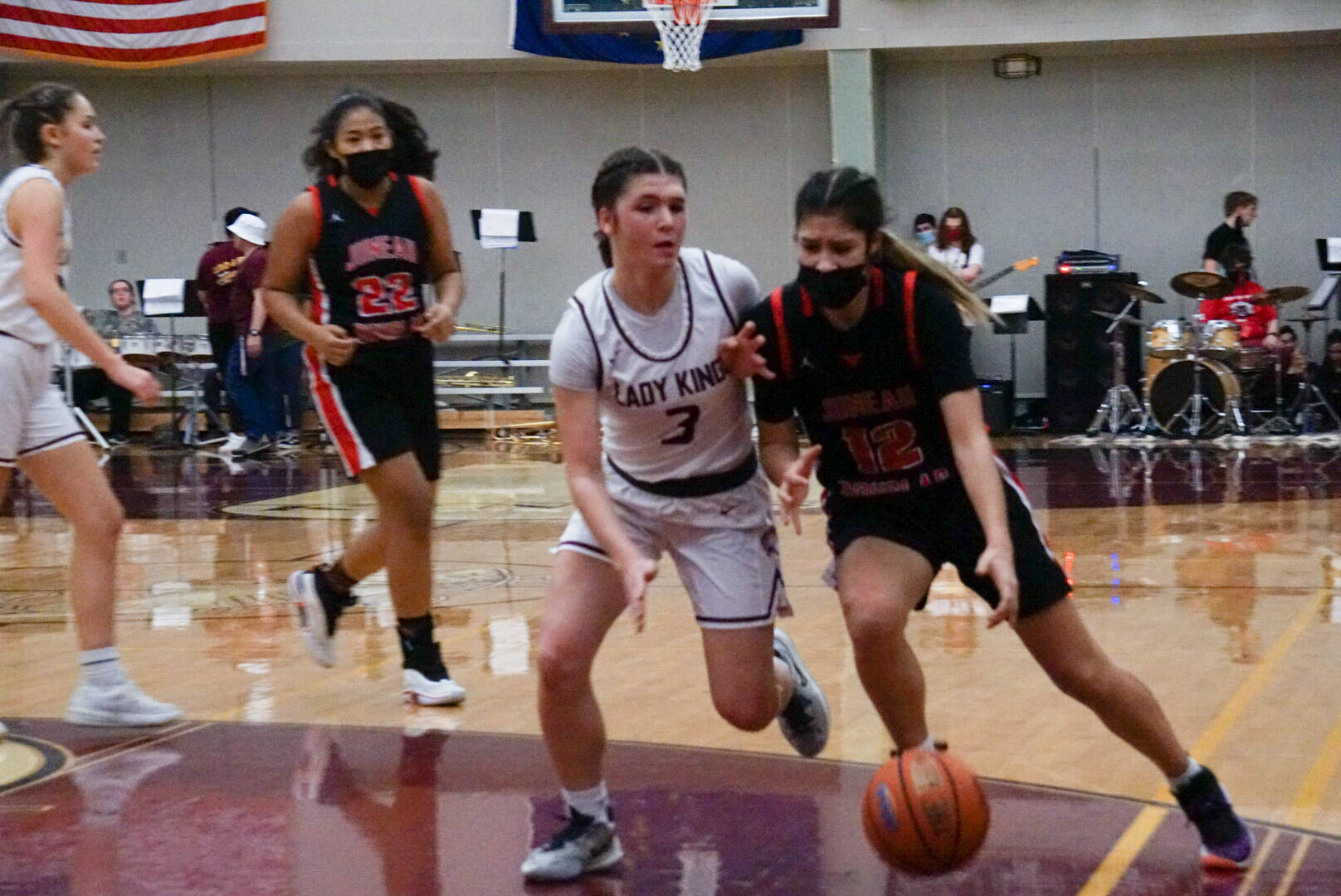By Jeff Lund
Basketball is a funny sport.
You practice drills to recreate situations you’ll encounter in games hoping that, if all goes well, you’ll make kids cry. That’s not the goal, of course, but it is an unspoken consequence.
It’s rarely good to overanalyze, certainly in this case, but reflecting on the big picture is important in order to see that it’s not only just a game, but we’re dealing with teenagers.
I coached basketball for 13 years, the last three in Ketchikan as an assistant for the girls team, but I’ve been a spectator for four years now.
I watched last Friday as a few of my journalism students were crushed by a game-winning shot. Crushed is the right word when you’re talking about kids who battle and give so much to their teammates, only to get outscored. I am careful not to say “lose” here because that might evoke the thought of being a “loser” just because you didn’t score enough points. There is a profound difference between not scoring enough points, and being a loser. The same goes with winning.
Coaches often navigate the minutiae of these definitions with their players and themselves.
As I watched the Kayhi girls cut down another net, I thought about the Lady Crimson Bears players who were crushed by Shaelyn Mendoza’s corner three-pointer their freshman year.
It’s interesting to pan out a bit and widen the view, especially when the game is over and the uniforms are put away.
The thing is, sometimes the kids handle things better than the adults. Maybe as we’re hoping kids learn things from their experiences, we should look for opportunities to learn too.
As heated as the rivalry between Ketchikan and Juneau is, I had students in my class who felt bad for Cooper Kreigmont and the Crimson Bears team who didn’t have the chance to play at state last season. As happy as the girls I helped coach were to beat the J-D ladies, none of them had a bad thing to say about kids like Caitlin Pusich or Cassie Dzinich.
There is no question who people on both sides want to win, but when the game is over and the cheering sections have scattered, we’re talking about kids and a lot of them represent their schools extremely well. Even better than adults.
Basketball can teach you a lot about life. But the key word is can. There is no guarantee that it will. It can turn a kid into an arrogant punk or selfish jerk. It can also teach kids about resilience, sacrifice, and give them the opportunity to exercise things like mental toughness. Everyone says they want mental toughness, but how does a kid handle a shot not falling? How does she react when she doesn’t like the official’s calls? How does he react after a buzzer-beater?
And for those of us in the stands, what kind of adults do we become under those same circumstances?
The high school basketball experience should be stressful and border on miserable at times. Sure, the more you care and the more effort you put into it the more it hurts if you lose, but I don’t like non-competitive silliness in the name of “fun.” That insulates people from disappointment, but also from lessons and growth.
I’m happily finished with coaching so I have time to pursue steelhead, enjoy Winter Break, have afternoons and not end up in Seattle during what should have been a routine flight home.
But I do like watching, cheering, and sometimes overthinking.
• Jeff Lund is a freelance writer based in Ketchikan. His book, “A Miserable Paradise: Life in Southeast Alaska,” is available in local bookstores and at Amazon.com. “I Went to the Woods” appears twice per month in the Sports & Outdoors section of the Juneau Empire.

